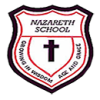Nazareth Nursery and Primary School, established in January 1983 by Dr. Anthony Cardinal Okogie, is located in Festac Town, Lagos. The school serves both the Catholic community and other religious denominations, aiming to develop children morally, spiritually, academically, and socially, in alignment with its motto: “To Grow in Wisdom, Age, and Grace.”
Lagos State Primary Education Curriculum
The Lagos State Universal Basic Education Board (LASUBEB) oversees the implementation of the primary education curriculum in the state. The curriculum is designed to provide a comprehensive foundation for pupils, preparing them for secondary education and beyond. The core subjects typically include:
- English Language: Developing literacy, comprehension, and communication skills.
- Mathematics: Fostering numerical and problem-solving abilities.
- Basic Science and Technology: Introducing scientific concepts and technological awareness.
- Social Studies: Understanding societal values, history, and civic responsibilities.
- Cultural and Creative Arts: Encouraging artistic expression and appreciation of culture.
- Physical and Health Education: Promoting physical fitness and health consciousness.
- Religious Studies: Instilling moral values and spiritual growth.
- Nigerian Languages: Preserving indigenous languages and cultural heritage.
Nazareth School’s Curriculum
Nazareth School adheres to the Nigerian national educational standards while integrating its unique Catholic ethos. The curriculum is structured to ensure holistic development across various educational stages:
- Pre-School (0 – 4 Years):
- Mathematical Progress: Developing early numeracy skills.
- Language Development: Enhancing communication and literacy.
- Religion: Instilling foundational moral and spiritual values.
- Lower Primary (Primary 1 – 2):
- Mathematics: Building on numerical proficiency.
- Home Economics: Teaching basic life skills and home management.
- Health Science: Emphasizing personal health and hygiene.
- French: Introducing a foreign language to enhance cognitive development.
- English Language: Strengthening literacy and communication.
- Arts: Fostering creativity and artistic skills.
- Computer Science: Ensuring early digital literacy.
- Upper Primary (Primary 3 – 6):
- Yoruba: Promoting indigenous language proficiency.
- Verbal Aptitude: Enhancing verbal reasoning and comprehension.
- Social Studies: Understanding societal structures and civic duties.
- Science: Encouraging scientific inquiry and knowledge.
- Religion: Deepening moral and spiritual understanding.
- Quantitative Aptitude: Developing analytical and problem-solving skills.
- Phonics: Improving reading and pronunciation skills.
- Physical and Health Education: Maintaining physical well-being and fitness.
- Music: Cultivating musical talents and appreciation.
- Mathematics: Advancing mathematical competencies.
- Computer Science: Enhancing technological skills.
- English Language: Mastering language arts and communication.
Comparative Insights
While both curricula aim to provide a robust educational foundation, Nazareth School distinguishes itself through several enhancements:
- Comprehensive Subject Offering: Nazareth School introduces subjects like Home Economics, French, Verbal Aptitude, Quantitative Aptitude, Phonics, and Music at various stages, enriching the standard curriculum and catering to diverse student interests.
- Early Digital Literacy: The inclusion of Computer Science from the Lower Primary level ensures that pupils are adept at navigating the digital world from an early age.
- Catholic Ethos: The curriculum’s integration of religious studies across all levels reflects the school’s commitment to moral and spiritual development, aligning with its Catholic foundation.
- Language Diversity: Beyond the standard English and indigenous language instruction, the introduction of French broadens linguistic capabilities and cultural awareness.
Conclusion
Nazareth School’s curriculum not only aligns with the Lagos State educational standards but also enriches them by incorporating additional subjects and values-based education. This holistic approach ensures that pupils are well-prepared academically, morally, and socially, embodying the school’s mission to nurture individuals who grow in wisdom, age, and grace.



